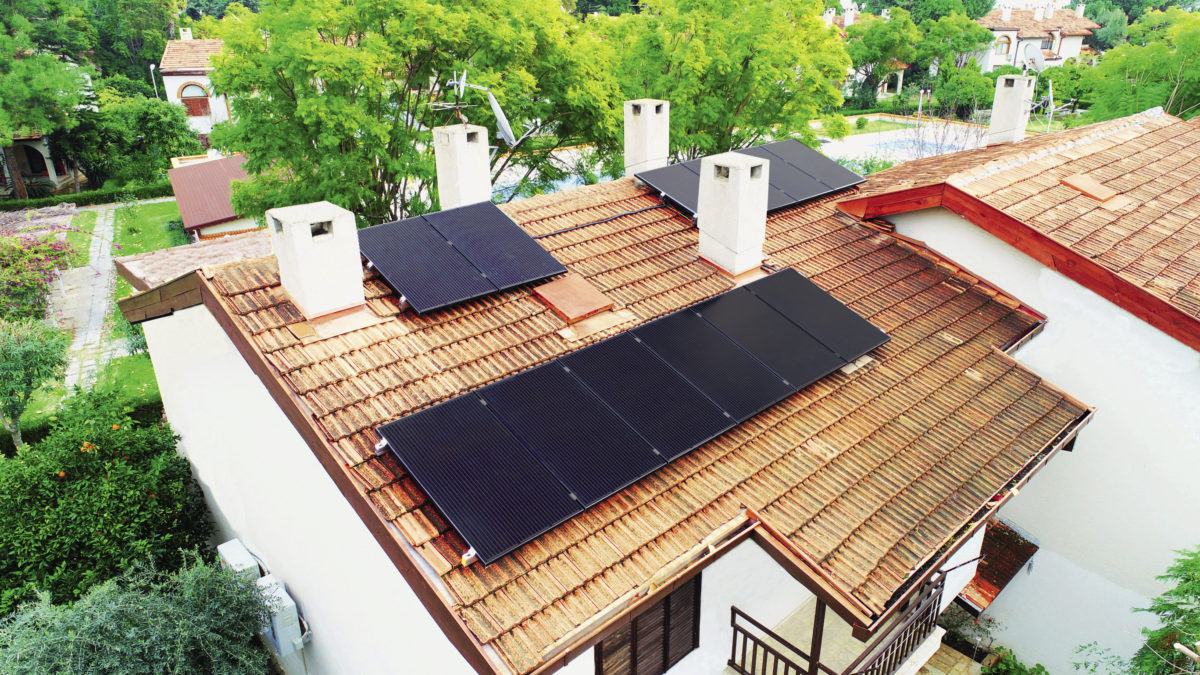The Turkish Energy Market Regulatory Authority – the EPDK – has published new rules for the operation of solar power systems ranging in generation capacity from 3-10 kW under a net metering regime.
The long-expected scheme, for which the EPDK issued a first draft in January 2018, will enable Turkish homeowners and businesses to install PV on rooftops or facades without having to receive official approval, and to sell excess power to distributors.
Small scale solar ready for take off
According to information provided to pv magazine by Eren Engür, managing partner at Icarus Energy, the scheme will be open to projects with a self-consumption rate of at least 50% and the net metering tariff, to be paid monthly, will equal the electricity price for residential customers.
Last May the Turkish government decreed PV systems installed under the new rules, which were still awaiting approval at the time, would be exempted from the 5% income tax payable on revenue generated from the sale of excess power to the grid.
New provisions for unlicensed projects
In another legislative act published in the Turkish official journal on May 10, the government amended the rules for ‘unlicensed’ PV projects – previously defined as facilities with not more than 1 MW of generation capacity.
The major change was that the unlicensed bracket now applies to all projects with a capacity of up to 5 MW. However, the only ground mounted projects eligible for unlicensed status are public installations used for agricultural irrigation, water treatment plants or waste treatment facilities. Such projects must only have a generation capacity to meet their needs and constraints on nearby grid networks will be considered when feasibility is determined.
Unlicensed commercial and industrial projects must be rooftop arrays. Renewable energy communities will be possible under the new rules.
Under the previous regime, responsible for most Turkish solar over the last three years, ground-mounted small solar – and even larger developments aggregated from 1 MW blocks – were generally allowed. Such projects were granted a U.S. dollar-linked 10-year FIT of $0.133/kWh.
In March the founder of Icarus Energy, Hakki Karacaoglan, revealed projects with a total capacity of 6.4 GW were given the green light under the YEKA scheme and around 5.1 GW of them were online or close to completion, representing almost all the solar capacity registered by grid operator TEİAŞ at the end of February.
Growth will continue, but at a slower pace
Around 5.4 GW of PV systems are connected to the Turkish grid, according to the most recent statistics published by TEİAŞ.
Kutay Kaleli is president of solar association Günder, which represents the Turkish Republic in programs run by the IEA PVPS (International Energy Agency Photovoltaic Power Systems). Kaleli told pv magazine the country’s cumulative PV capacity may reach 6 GW by the end of the year, as a result of several unlicensed projects coming online in the first months of this year and of new installations being driven by net metering and newly defined unlicensed projects.
According to the Solar Energy Roadmap released by Günder in October, Turkey could achieve 38 GW of installed solar capacity by 2030.
Although not expanding at the rapid pace of the last two years, Turkish solar appears to be enjoying stable and constant growth. According to industry body SolarPower Europe, Turkey is expected to install an additional 5.5 GW of PV systems by 2023, for annual growth of around 1.1 GW. That should include the first large solar parks developed in the licensed PV market, which operates a tender mechanism that has so far proved underwhelming.
According to Icarus Energy’s Engür, the main challenge for the sector will remain access to financing.
This content is protected by copyright and may not be reused. If you want to cooperate with us and would like to reuse some of our content, please contact: editors@pv-magazine.com.




The new net metering rules only apply to for solar power systems from 3 to 10 kWp and with a self-consumption rate of at least 50%.
A capacity of 3 kWp is more than needed to cover the electricity consumption of normal households of 3000-4000 kWh per year.
Moreover, 50% self-consumption is not easy to achieve. With these restrictions, only the rich will profit from the new net metering scheme.